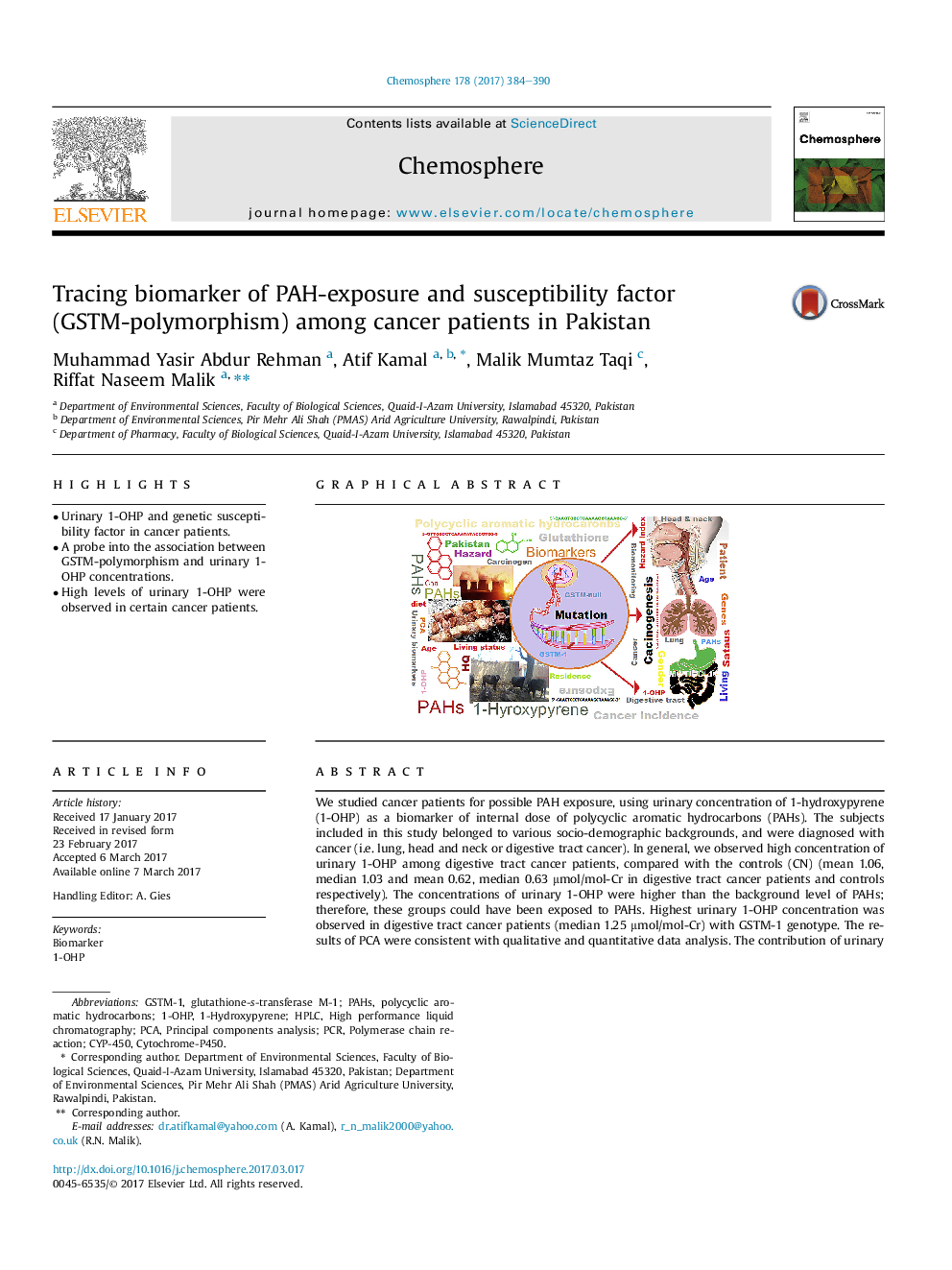| کد مقاله | کد نشریه | سال انتشار | مقاله انگلیسی | نسخه تمام متن |
|---|---|---|---|---|
| 5747254 | 1618793 | 2017 | 7 صفحه PDF | دانلود رایگان |

- Urinary 1-OHP and genetic susceptibility factor in cancer patients.
- A probe into the association between GSTM-polymorphism and urinary 1-OHP concentrations.
- High levels of urinary 1-OHP were observed in certain cancer patients.
We studied cancer patients for possible PAH exposure, using urinary concentration of 1-hydroxypyrene (1-OHP) as a biomarker of internal dose of polycyclic aromatic hydrocarbons (PAHs). The subjects included in this study belonged to various socio-demographic backgrounds, and were diagnosed with cancer (i.e. lung, head and neck or digestive tract cancer). In general, we observed high concentration of urinary 1-OHP among digestive tract cancer patients, compared with the controls (CN) (mean 1.06, median 1.03 and mean 0.62, median 0.63 μmol/mol-Cr in digestive tract cancer patients and controls respectively). The concentrations of urinary 1-OHP were higher than the background level of PAHs; therefore, these groups could have been exposed to PAHs. Highest urinary 1-OHP concentration was observed in digestive tract cancer patients (median 1.25 μmol/mol-Cr) with GSTM-1 genotype. The results of PCA were consistent with qualitative and quantitative data analysis. The contribution of urinary 1-OHP eigenvector revealed a relatively high PAH-exposure among cancer patients compared with CN, while diet and age were influential parameters among cancer patients, which could have a strong link in cancer etiology in the selected exposure groups.
195
Journal: Chemosphere - Volume 178, July 2017, Pages 384-390